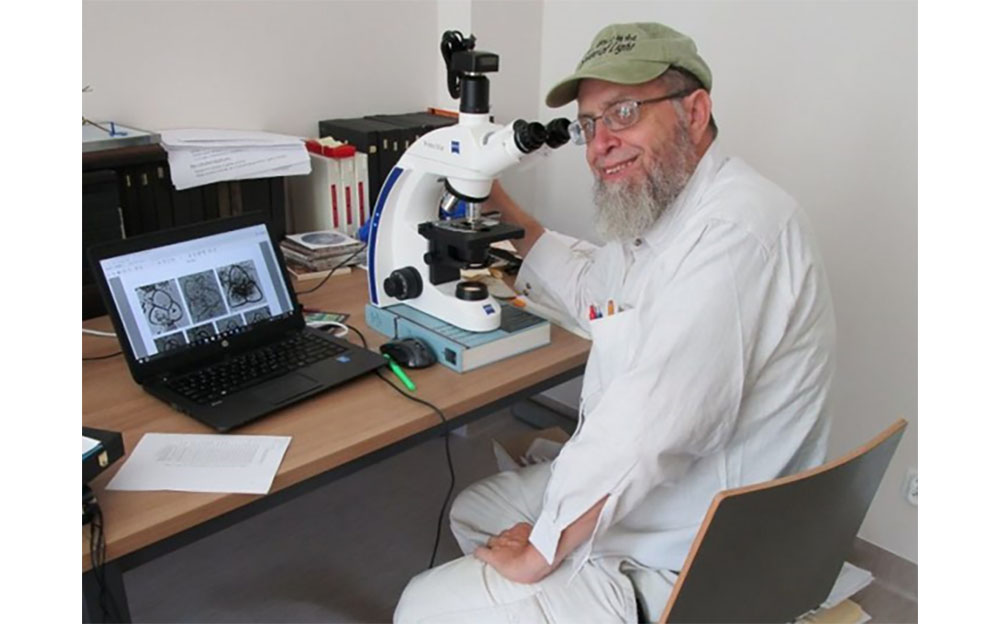
PRESQUE ISLE, Maine – After a long, long wait, University of Maine at Presque Isle Geology Professor Kevin McCartney soon will be departing for his second Fulbright Program research trip, this time to India to continue his nearly four decades of research in the field of micropaleontology.
McCartney learned in early spring 2020 that he had received the prestigious honor of being named a Fulbright scholar for the second time. His first Fulbright award in 2016-17 took him to the University of Szczecin in Poland where he studied the evolution of silicoflagellates, a group of marine algae that have a known geological record that goes back more than 100 million years. As plants, silicoflagellates produce breathable oxygen from carbon dioxide and are thus part of an atmospheric balance that is important to those in the animal kingdom.
The COVID-19 pandemic, however, brought Fulbright exchanges to a halt for months. McCartney received the green light two weeks ago to move forward with his trip and will depart for Lucknow, India.
Research at the Birbal Sahni Institute of Palaeosciences in Lucknow will begin in early March after a week of quarantine. McCartney will be studying sediments from a recently drilled deep sea core from the Southwest Pacific Ocean near New Zealand, and also taking photographs using a scanning electron microscope to support two papers currently in draft from a sabbatical he took last fall in Nebraska. During that sabbatical at the University of Nebraska-Lincoln, McCartney studied a new suite of Cretaceous sediment samples from northern Canada and discovered four new species and two new genera. One of the new genera, he said, is “especially remarkable.” He will complete his Fulbright to India and return to Maine in mid-June.
The Fulbright Program is the flagship international educational exchange program sponsored by the U.S. government and is designed to increase mutual understanding between the people of the United States and the people of other countries. The program operates in over 160 countries worldwide.
This is McCartney’s third lengthy visit to a foreign country to complete a sabbatical. He has previously made long visits to Poland and Japan and believes that such visits to other locations are important to maintain academic vigor.
“While UMPI has exceptional programs for undergraduates, exposure to graduate students and professors from a larger school helps me to keep current on new ideas, expand research connections and allows for the use of equipment not available in northern Maine,” he said.
In particular while in Lucknow, McCartney seeks use of an electron microscope for high magnification images of his tiny fossils. In return for use of an office and supplies, he often assists foreign students and faculty in editing English language manuscripts.
Lucknow is located in northern India, not far south of Nepal and north of the Taj Mahal. As with the previous Fulbright, McCartney plans to maintain a daily photo blog of his observations and experiences in India. Unfortunately, he will not be able to travel much due to COVID, and his wife Kate will not be able to visit him during his stay there, but he still hopes to have insightful experiences to share.







